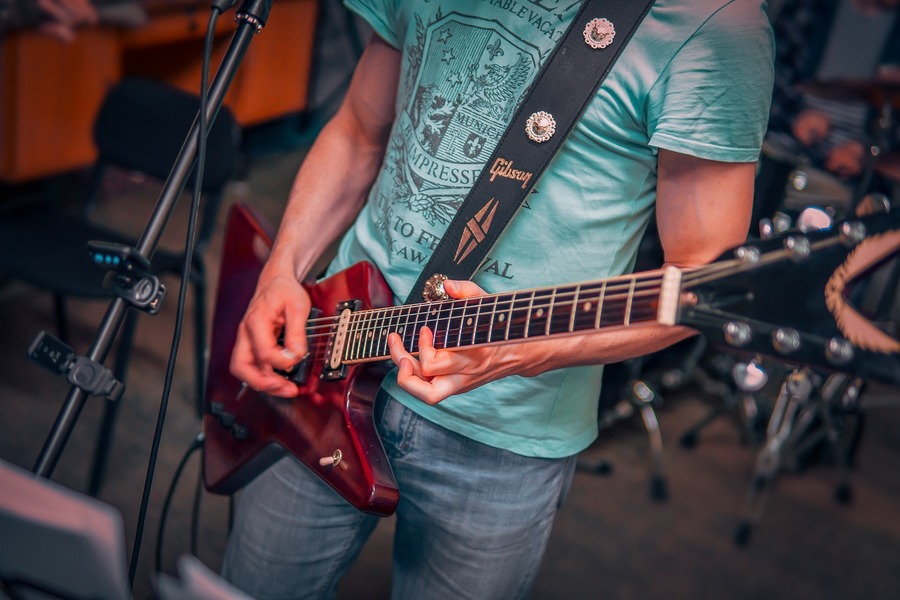Guitar performance anxiety is a common challenge for many musicians, both novices and seasoned performers alike. Overcoming this anxiety can significantly enhance your ability to perform confidently and enjoyably. Here are some strategies for success:

1. Preparation is Key
- Practice Thoroughly: Make sure you know your pieces inside and out. The more confident you are in your playing, the less room there is for anxiety.
- Simulate Performance Conditions: Practice in environments similar to where you’ll be performing. This could include playing in front of friends or family, or even recording yourself to get used to being watched.
2. Mindfulness and Relaxation Techniques
- Breathing Exercises: Deep, controlled breathing can help calm your nerves. Try inhaling for four counts, holding for four, and exhaling for four.
- Visualization: Imagine yourself performing successfully. Visualize the venue, the audience, and your flawless performance.
- Meditation and Yoga: Regular practice of meditation and yoga can help reduce overall anxiety levels and improve focus.
3. Positive Self-Talk
- Affirmations: Use positive affirmations to build your confidence. Remind yourself of your strengths and past successes.
- Reframe Negative Thoughts: Instead of thinking, “What if I mess up?” try thinking, “I have prepared well, and I am ready to perform.”
4. Focus on the Music, Not the Audience
- Connection with the Music: Shift your focus from the audience to the music. Immerse yourself in the piece you are playing.
- Enjoy the Process: Remember why you love playing guitar and focus on the joy it brings you rather than the fear of making mistakes.
5. Gradual Exposure
- Start Small: Begin by performing in low-pressure environments, such as casual gatherings with friends or family.
- Gradually Increase: As you become more comfortable, gradually move to larger audiences and more formal settings.
6. Professional Help
- Music Coaches: Consider working with a coach who can provide specific techniques to manage performance anxiety.
- Therapists: If anxiety is significantly impacting your life, a therapist specializing in performance anxiety can be very beneficial.
7. Physical Exercise
- Regular Exercise: Physical activity can reduce anxiety by releasing endorphins and improving overall mental health.
- Pre-Performance Routine: Incorporate light exercise or stretching into your pre-performance routine to reduce tension.
8. Healthy Lifestyle
- Sleep: Ensure you get enough rest. Fatigue can exacerbate anxiety.
- Nutrition: Eat a balanced diet to maintain energy levels and overall well-being.
9. Performance Rituals
- Routine: Develop a pre-performance routine that helps you feel grounded and prepared.
- Lucky Charms: Some musicians find comfort in having a small, personal item with them during performances.
10. Experience and Perspective
- Accept Imperfection: Understand that no performance is perfect, and mistakes are part of the learning process.
- Gain Experience: The more you perform, the easier it becomes. Each performance is an opportunity to grow and learn.
Conclusion
Dealing with guitar performance anxiety is a multifaceted process that involves preparation, mental techniques, physical health, and gaining experience. By incorporating these strategies, you can manage your anxiety and perform with confidence and enjoyment. Remember, the goal is not to eliminate anxiety completely but to manage it effectively so that it does not hinder your performance.
Further Reading
For more detailed strategies and personal experiences from seasoned guitarists, consider exploring additional resources such as books, online courses, and forums dedicated to performance anxiety and guitar playing.




